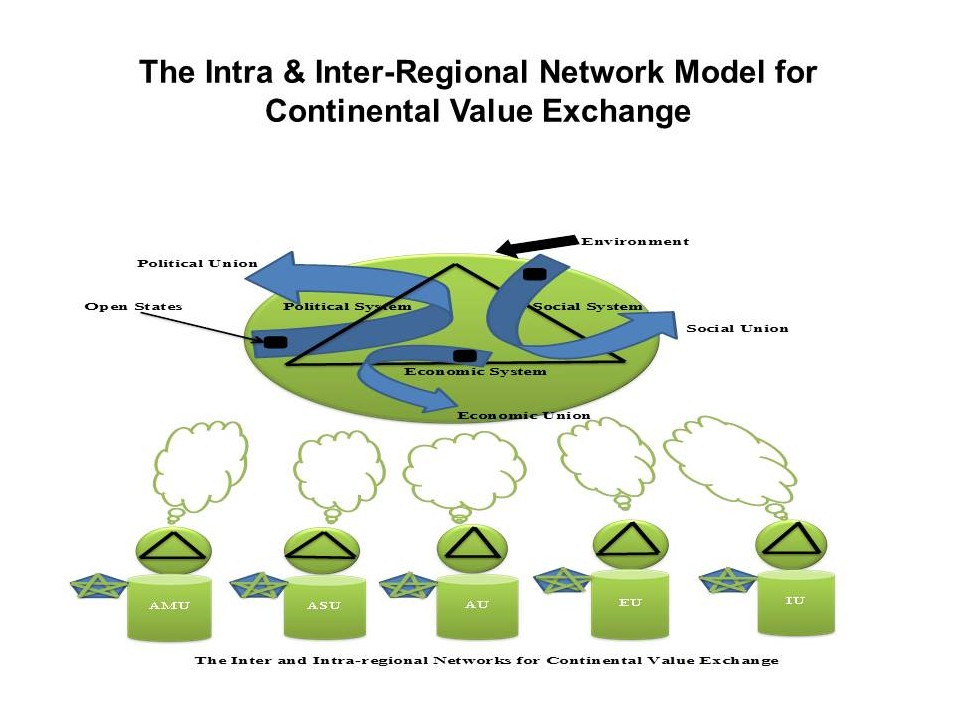A UN 2.0 System, Multilateralism 2.0 and its Educational Tools Unmasked from Interpreting a Formerly Impossible Web 2.0 Metaphor
Out of 2,702 submissions from over 122 countries across the world, Adewale M. Bakare is a semi-finalist in "the Global Challenge Prize 2017", and "the Educators' Challenge Prize 2018" for interpreting a formerly impossible Web 2.0 Metaphor for unmasking a UN 2.0 System, Multilateralism 2.0 and a new field of Intercontinental Relations. Both competitions are uniquely historic, and the biggest calls for 21st century models of global governance and its educational tools by Swedish Global Challenges Foundation. Meanwhile, the project was originally an EU funded FP7 programme with Project ID 225722 for Changing Multilateralism: The European Union as a Global-Regional Actor for Security and Peace (the EU-GRASP) that was conceived to contribute towards the understanding and articulation of the current and future role of the EU in a challenged multilateral environment. This was a 3-year project that started in February 2009 and ended in January 2012. The purpose is aimed at advancing the state-of-the-art of theory on multilateralism, by integrating the contemporary agenda of international security, multilateral security governance and the overall role of the EU within these fields. Furthermore, the EU-GRASP Project was carried out by a consortium of nine partners, namely University of Warwick (UK), University of Gothenburg (Sweden), Florence Forum on the Problems of Peace and War (Italy), KULeuven (Belgium), Centre for International Governance Innovation (Canada), Peking University (China), Institute for Security Studies (South Africa) and Ben-Gurion University of the Negev (Israel). While the Project was coordinated by Lan Van Langenhove of the United Nations University Institute on Comparative Regional Integration Studies (UNU-CRIS) Bruges, Belgium. It was at this EU-GRASP project that Web 2.0 metaphor was coined for the realization of multilateralism 2.0 vision for conceptualizing new multilateralism, as Multilateralism 2.0 while at the end, the Web 2.0 metaphor could not be used to conceptualize Multilateralism 2.0. To this end, academic interest is by no means confined to Europe but rather to the rest of the world: hence, Adewale is one of the new minds that is proposing for a New Way and a New Shape; titled "A UN 2.0 System for Remodelling Global Cooperation: The Built Unified World Approach Over Web 2.0", and “Modelling a Built Intercontinental System for Global Governance 2.0: A Global Union Model". www.academia.edu/38044422/A_UN_2.0_SYSTEM_FOR_REMODELLING_GLOBAL_COOPERATION www.academia.edu/38045974/Modelling_a_Built_Intercontinental_System_for_Global_Governance_2.0 As a global citizen, Adewale has built a Unified World Approach since 2012 and also validated same by using the Web 2.0 Metaphor as a new data in 2018, for falsifying David Mitrany's Functional Approach and the formation of UN System. Consequently, our global decision-making structures are transformed, unified and updated in tackling climate change, pandemics, extreme poverty, global conflicts, migrant and global economic crises. In sum, network thinking and practice is profoundly introduced for transforming Multilateralism from closed to open system. Finally, the essence is to network civilizations as Global-Regional Actors for a people-centric Multilateralism 2.0 ecosystem that links International Relations to Intercontinental Relations, and transforms the UN System to a UN 2.0 System, or Global governance 2.0.



